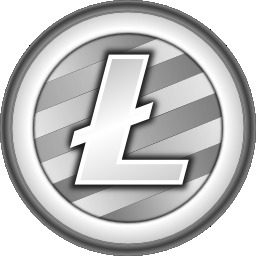Comparar Bitcoin Cash (BCH) vs Litecoin (LTC) Coin
In the evolving landscape of digital currencies, Bitcoin Cash (BCH) and Litecoin (LTC) have carved a noteworthy reputation for themselves. As both aim to ease daily transactions with faster speed and lower costs, it's essential to delve into their differences and similarities, exploring their unique attributes and potential for future growth.
User rating
Cryptogeek rating
Puntaje de confianza
¿Cómo funciona?
Sobre
|
Bitcoin Cash es el hard fork de Bitcoin más popular propuesto por Roger Ver en 2017 como una solución al problema de las transacciones lentas en la red de Bitcoin. La idea era crear una versión de Bitcoin que fuera mejor para los pagos, mientras que el Bitcoin original se considera más como una reserva de valor. Bitcoin Cash tiene un tamaño de bloque más grande que Bitcoin, por lo que las transacciones de esta moneda son más rápidas y baratas. Por otro lado, requiere más recursos para ejecutar el nodo completo de Bitcoin Cash, lo que lo hace más vulnerable a la centralización. Bitcoin Cash atrajo rápidamente a un gran número de seguidores y se convirtió en una parte destacada del mercado de criptomonedas. BCH está disponible en muchos intercambios y es compatible con numerosos servicios de cifrado. Desde el lanzamiento del proyecto, nunca ha salido del top 10.
|
Litecoin fue creado en 2011 por un empleado de Google, Charlie Lee. Actualmente, esta criptomoneda es una de las más grandes por capitalización de mercado. Litecoin fue creado como uno de los primeros tenedores de la cadena de bloques de Bitcoin. Además, es seguro decir que Litecoin es una de las primeras monedas alternativas. Si bien Bitcoin se basa en el algoritmo SHA-256, Litecoin utiliza un algoritmo de cifrado más ligero.
|
Tipo
Fecha de creación
País
|
International
|
International
|
Idiomas
Equipo
Protocolo
|
Public blockchain
|
Public blockchain
|
Precio actual (USD)
Punto más alto (USD)
Intercambiar en el precio (24h)
Volumen (24h)
|
9567136.78351
|
32694144.06969
|
Hashrate
Suministros máximos
|
21000000.00000
|
84000000.00000
|
Suministro total
Suministros circulantes
|
19917362.39665
|
76234583.23347
|
Velocidad de transacción / Tiempo de Bloque
Comisión de transacción
Rentabilidad minera
Algoritmo
Tipo de prueba
Totalmente preminado
Dirección de contrato inteligente
Total de monedas extraídas
|
18462627.14680
|
65464957.99676
|
Es el comercio
Recompensa de bloque
|
6.250000000000
|
12.500000000000
|
Tiempo de bloque
| Sobre |
Bitcoin Cash es el hard fork de Bitcoin más popular propuesto por Roger Ver en 2017 como una solución al problema de las transacciones lentas en la red de Bitcoin. La idea era crear una versión de Bitcoin que fuera mejor para los pagos, mientras que el Bitcoin original se considera más como una reserva de valor. Bitcoin Cash tiene un tamaño de bloque más grande que Bitcoin, por lo que las transacciones de esta moneda son más rápidas y baratas. Por otro lado, requiere más recursos para ejecutar el nodo completo de Bitcoin Cash, lo que lo hace más vulnerable a la centralización. Bitcoin Cash atrajo rápidamente a un gran número de seguidores y se convirtió en una parte destacada del mercado de criptomonedas. BCH está disponible en muchos intercambios y es compatible con numerosos servicios de cifrado. Desde el lanzamiento del proyecto, nunca ha salido del top 10.
|
Litecoin fue creado en 2011 por un empleado de Google, Charlie Lee. Actualmente, esta criptomoneda es una de las más grandes por capitalización de mercado. Litecoin fue creado como uno de los primeros tenedores de la cadena de bloques de Bitcoin. Además, es seguro decir que Litecoin es una de las primeras monedas alternativas. Si bien Bitcoin se basa en el algoritmo SHA-256, Litecoin utiliza un algoritmo de cifrado más ligero.
|
| Tipo |
Tipo
coin
|
Tipo
coin
|
| Fecha de creación |
Fecha de creación
2017
|
Fecha de creación
2011
|
| País |
País
International
|
País
International
|
| Idiomas |
Idiomas
Sin datos
|
Idiomas
Sin datos
|
| Equipo |
Equipo
Public
|
Equipo
Public
|
| Protocolo |
Protocolo
Public blockchain
|
Protocolo
Public blockchain
|
| Precio actual (USD) |
Precio actual (USD)
551.2769
|
Precio actual (USD)
112.2027
|
| Punto más alto (USD) |
Punto más alto (USD)
4355.6200
|
Punto más alto (USD)
375.2900
|
| Intercambiar en el precio (24h) |
Intercambiar en el precio (24h)
1.00
|
Intercambiar en el precio (24h)
-0.90
|
| Volumen (24h) |
Volumen (24h)
9567136.78351
|
Volumen (24h)
32694144.06969
|
| Hashrate |
Hashrate
2653000000
|
Hashrate
165730
|
| Suministros máximos |
Suministros máximos
21000000.00000
|
Suministros máximos
84000000.00000
|
| Suministro total |
Suministro total
Sin datos
|
Suministro total
Sin datos
|
| Suministros circulantes |
Suministros circulantes
19917362.39665
|
Suministros circulantes
76234583.23347
|
| Velocidad de transacción / Tiempo de Bloque |
Velocidad de transacción / Tiempo de Bloque
116
|
Velocidad de transacción / Tiempo de Bloque
56
|
| Comisión de transacción |
Comisión de transacción
Sin datos
|
Comisión de transacción
Sin datos
|
| Rentabilidad minera |
Rentabilidad minera
low
|
Rentabilidad minera
low
|
| Algoritmo |
Algoritmo
SHA-256
|
Algoritmo
Scrypt
|
| Tipo de prueba |
Tipo de prueba
PoW
|
Tipo de prueba
PoW
|
| Totalmente preminado |
Totalmente preminado
Sin datos
|
Totalmente preminado
Sin datos
|
| Dirección de contrato inteligente |
Dirección de contrato inteligente
Sin datos
|
Dirección de contrato inteligente
Sin datos
|
| Total de monedas extraídas |
Total de monedas extraídas
18462627.14680
|
Total de monedas extraídas
65464957.99676
|
| Es el comercio |
Es el comercio
yes
|
Es el comercio
yes
|
| Recompensa de bloque |
Recompensa de bloque
6.250000000000
|
Recompensa de bloque
12.500000000000
|
| Tiempo de bloque |
Tiempo de bloque
600
|
Tiempo de bloque
150
|
Social
Sitio web
Twitter
Ventajas
|
Scalable
Highly Efficient
Easy To Acquire
|
Open-source Network
Decentralized
Transactions Fees
|
Desventajas
|
Branding Issues
|
Has some branding issues
|
Clasificación
| User rating |
User rating
4.4 / 5
7 reseñas de los usuarios
|
User rating
5 / 5
5 reseñas de los usuarios
|
| Cryptogeek rating |
Cryptogeek rating
4 / 5
|
Cryptogeek rating
3.4 / 5
|
| Ventajas |
Ventajas
Scalable
Highly Efficient
Easy To Acquire
|
Ventajas
Open-source Network
Decentralized
Transactions Fees
|
| Desventajas |
Desventajas
Branding Issues
|
Desventajas
Has some branding issues
|
La calificación de Bitcoin Cash (BCH) es 4.4, basada en 7 opiniones de usuarios. La calificación de los usuarios de Litecoin (LTC) es 5, basada en 5 opiniones de los usuarios.
We also calculate the special Cryptogeek TrustScore based on the characteristics of each coin.
Elija otras empresas
Thus, after comparing Bitcoin Cash and Litecoin's unique attributes, it's clear that while both offer their distinct advantages, the choice between the two depends largely on the individual's specific needs and preferences. As this dynamic industry continues to grow, each of these digital currencies will undoubtedly continue to evolve and refine their functionalities, potentially reshaping their competitive geography.
In the evolving landscape of digital currencies, Bitcoin Cash (BCH) and Litecoin (LTC) have carved a noteworthy reputation for themselves. As both aim to ease daily transactions with faster speed and lower costs, it's essential to delve into their differences and similarities, exploring their unique attributes and potential for future growth.

